Correction appended, March 26, 2015
The motives of the young co-pilot who officials believe slammed the Germanwings plane into a French mountainside on Tuesday remain a mystery more than two days later.
German authorities searched the Dusseldorf home of Andreas Lubitz on Thursday, looking for clues as to why he might have piloted the aircraft into French Alps, killing all 150 people on board. Five investigators went “through the apartment, looking for clues as to what the co-pilot’s motivation might have been,” the city’s police spokesman Markuz Diesczery said in televised comments, “if he did indeed bring the plane down.” Authorities were also seen removing bags from a residence believed to belong to his parents in Montabaur.
Earlier in the day, the French prosecutor investigating the deadly crash stunned relatives, officials and much of Europe, by telling reporters in an extraordinarily candid and chilling briefing that Lubitz apparently locked the seasoned captain out of the cockpit and “had a willingness to destroy the aircraft.”
“It was a voluntary action of the co-pilot,” Brice Robin, the Marseille prosecutor, said. “It is intentional, so we are going to have to change the nature of the investigation.”
The revelation transformed in an instant what most people thought was a tragic accident, into a criminal case of huge proportions. The focus is now on the young pilot with 18 months’ experience, who, according to the prosecutor, manipulated the controls to take the plane into its descent for about 10 minutes, until it smashed into the mountainside at 500 miles per hour.
German Chancellor Angela Merkel said Thursday that the revelations added a “new, simply incomprehensible dimension” to Tuesday’s fatal crash.
The mystery is why Lubitz, 28, from Montabaur, Germany, took himself, five colleagues and 144 passengers to a catastrophic death. He did all that without saying a single word, while the captain banged frantically on the cockpit door, attempting to get in as the aircraft plummeted downwards, the prosecutor said. He displayed no doubt that it was intentional. “I’m not using the word suicide because I do not know,” Robin said. “What I can say is that he voluntarily allowed the plane to descend, to lose altitude.”
The horrifying last minutes of the flight were captured on the cockpit voice recorder which rescue workers found amid the wreckage within hours of the crash on Tuesday. Detailing what the audio recording showed, Robin said the captain, Patrick Sonderheimer from Düsseldorf, is heard starting to prepare the details for the eventual landing at that German city, to which it was flying from Barcelona.
Robin said the recording showed about 20 minutes of “cordial” and “normal” banter between Sonderheimer and Lubitz. Sonderheimer then asked Lubitz to take over, and Lubitz gave a “laconic” one-word reply, Robin said. Sonderheimer left the cockpit, most likely to go to the toilet, then returned a few minutes later and asked Lubitz to open the door, after punching in the cockpit door code on the digital keypad outside. There was no answer, and with the door locked from the inside, the captain could not gain access.
With the captain desperately banging on the door, Lubitz remained completely silent, as the plane steadily descended at about 3,000 ft. per minute in a drastic diversion from the flight path, whose coordinates were set in the computer. “He was breathing normally,” Robin said. “It was not the breathing of someone suffering from any kind of illness.” Instead, “There was no word, no word, no word for the last 10 minutes. He voluntarily refused to open the door and turned the button to get down the plane.”
Witness Scenes From the Plane Crash in the French Alps
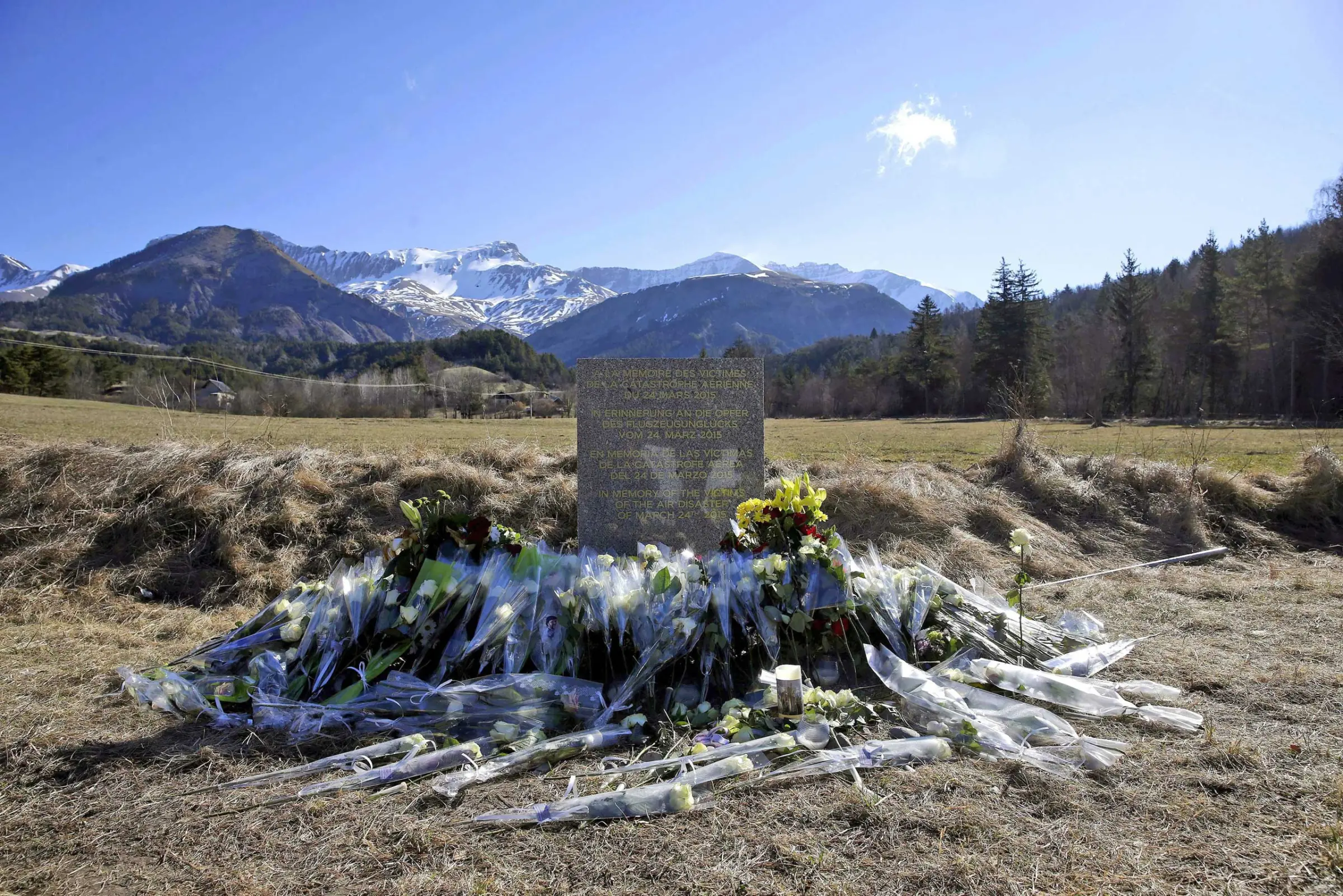
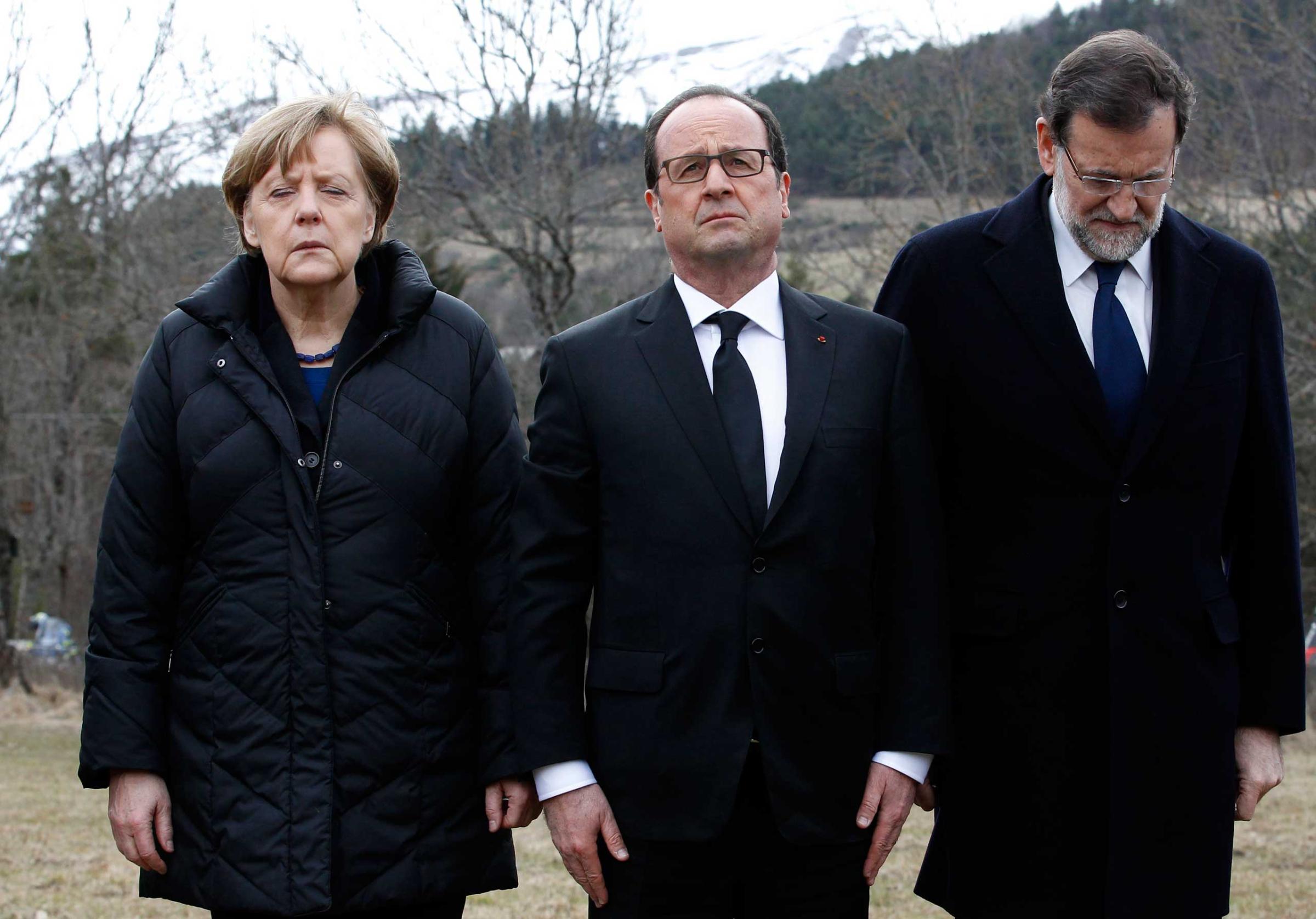
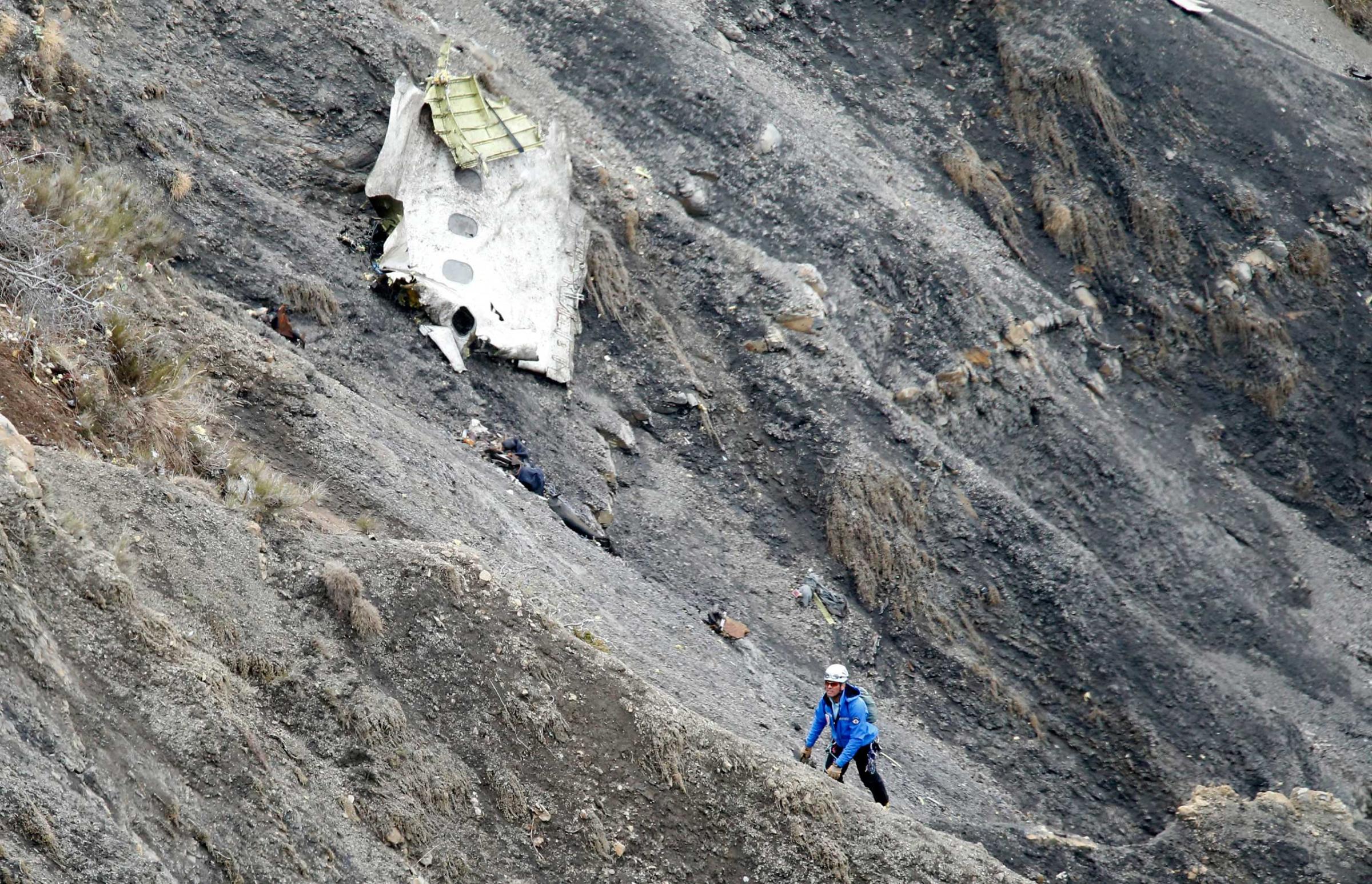
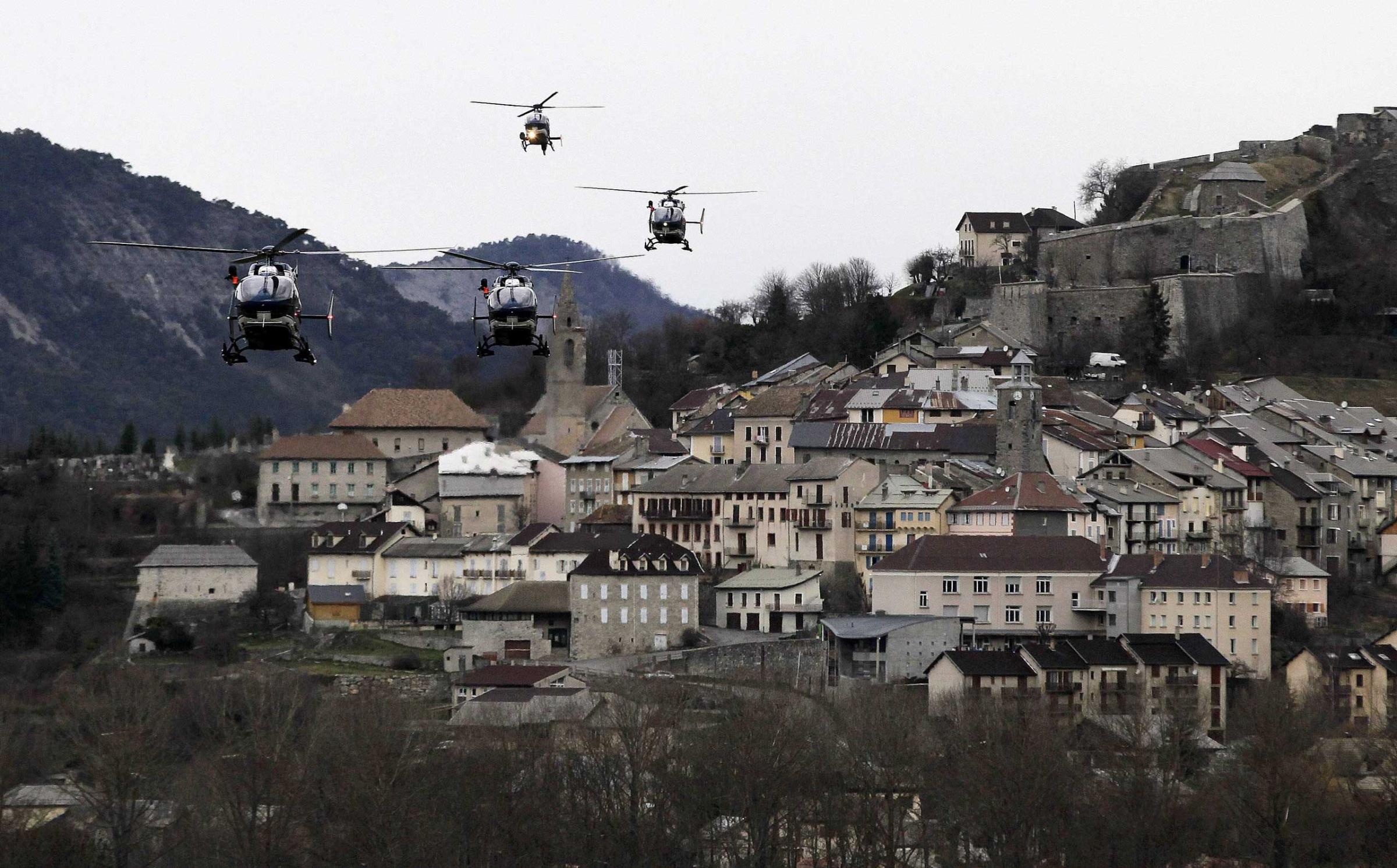
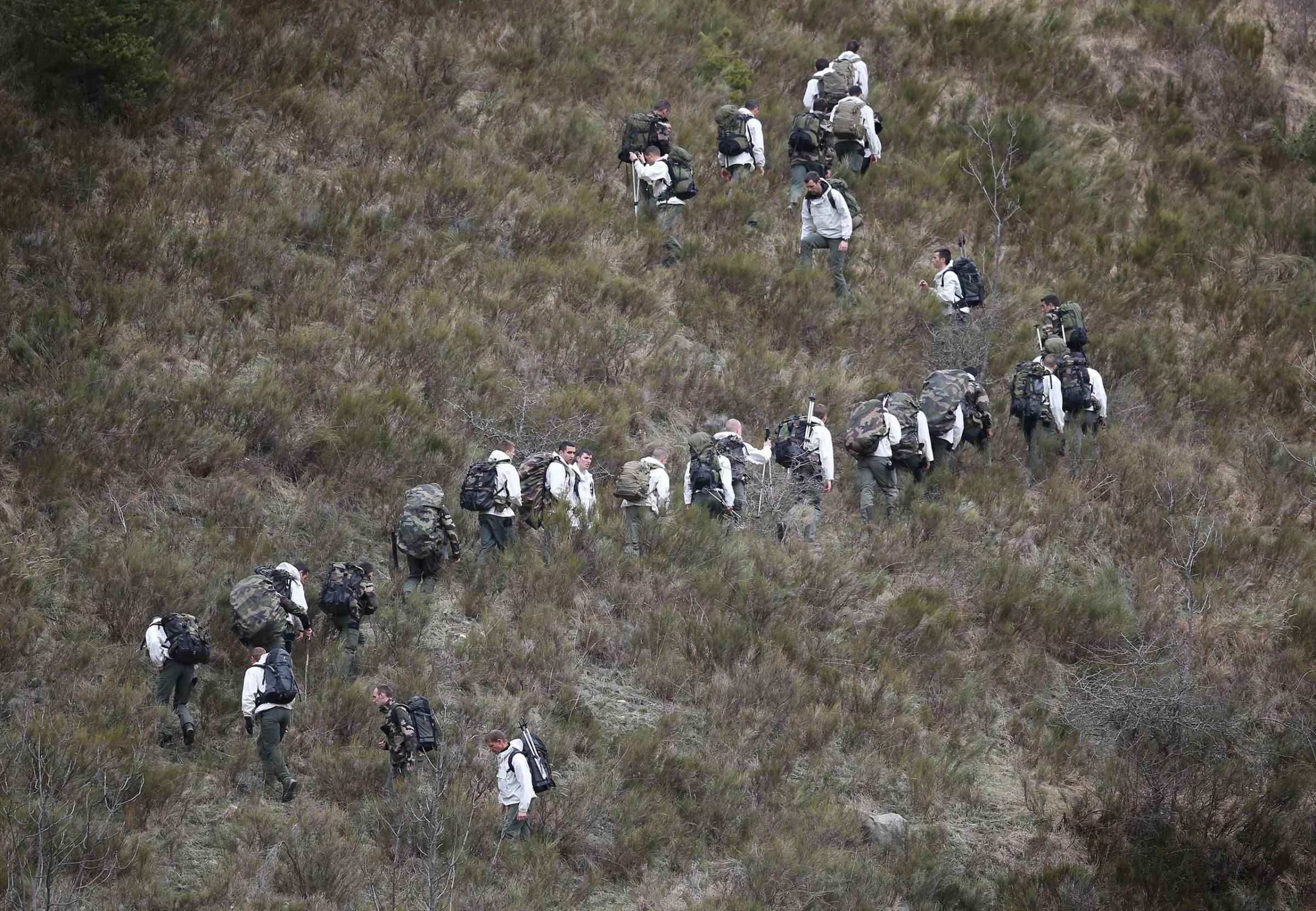
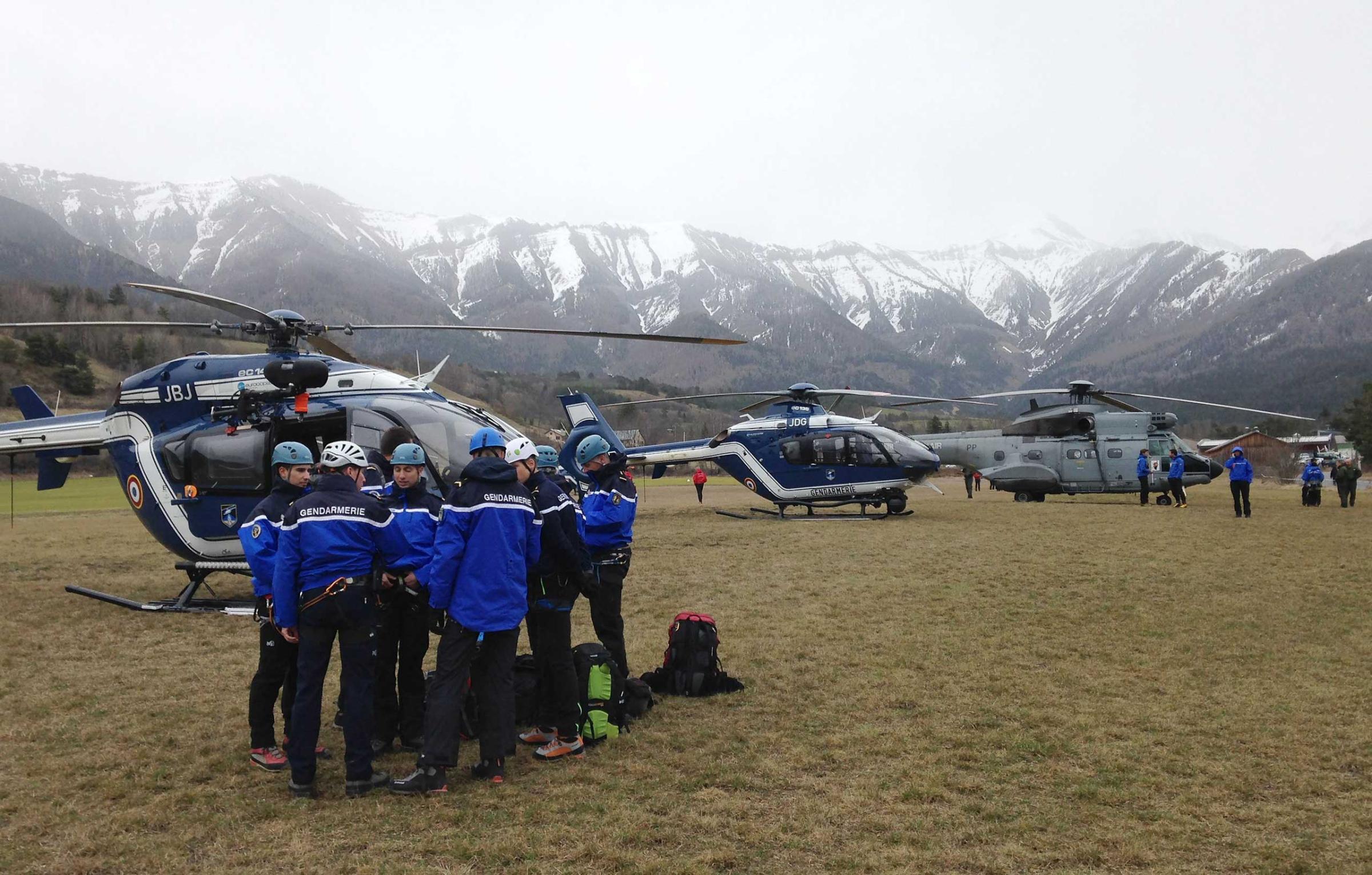
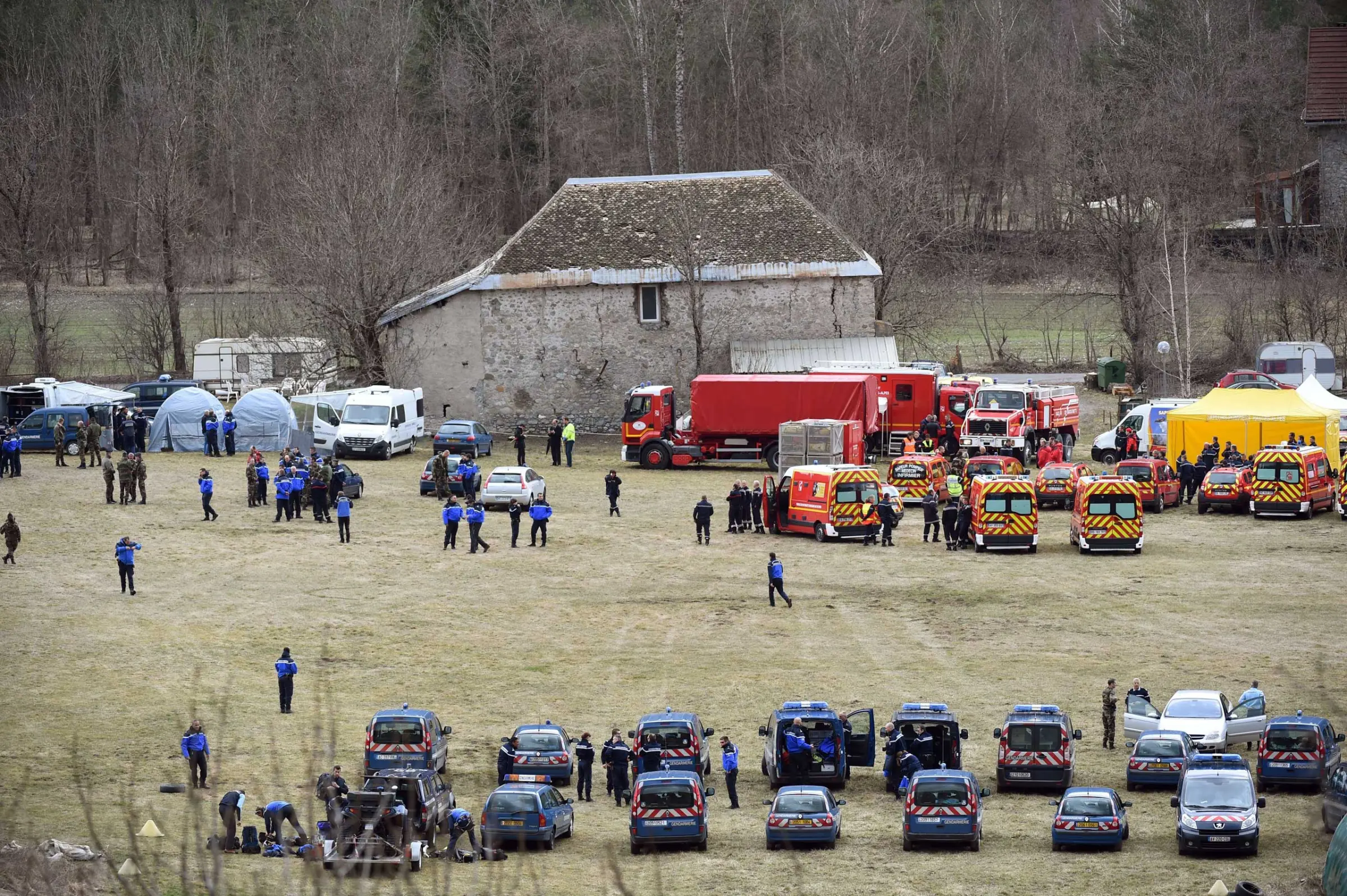
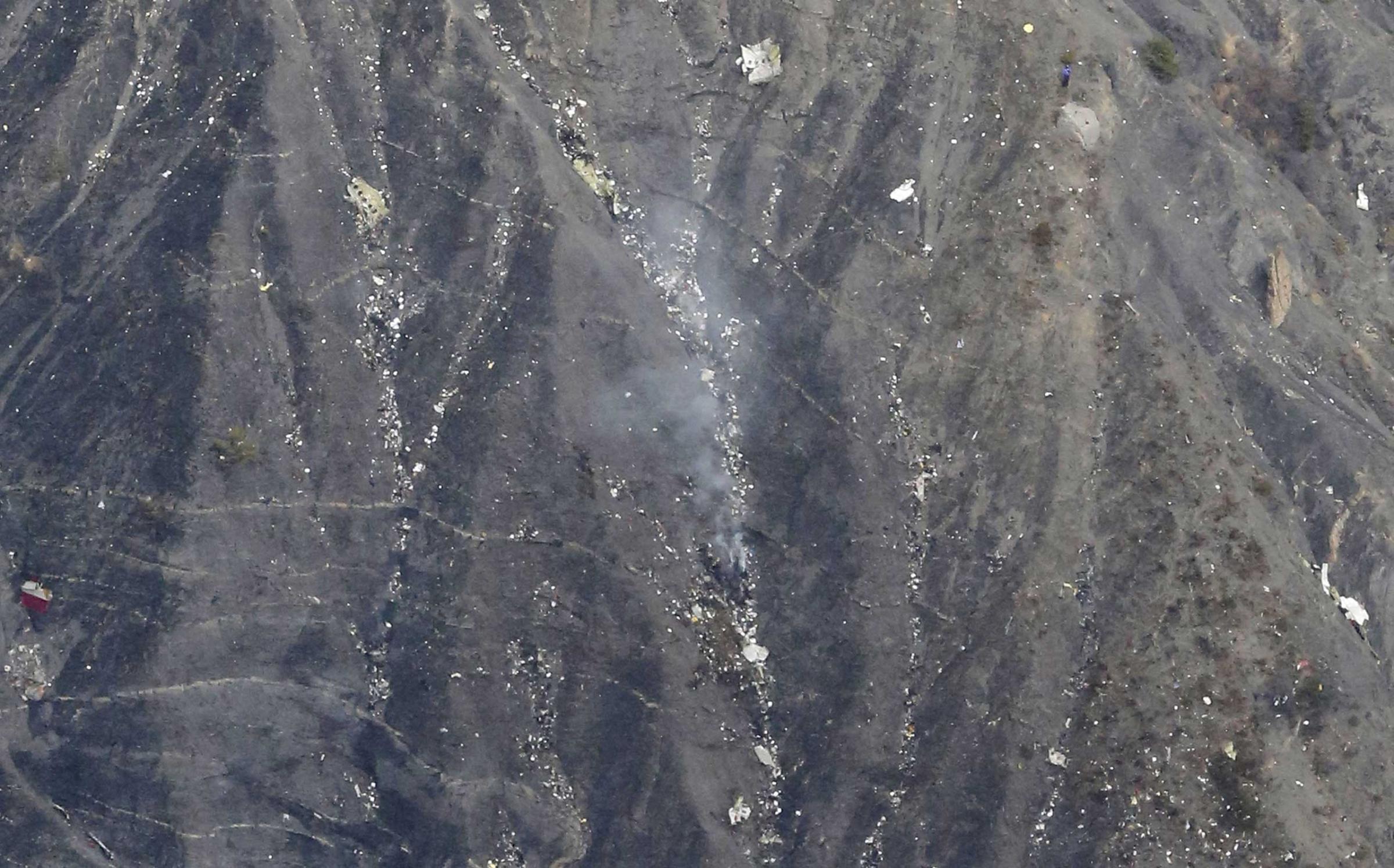
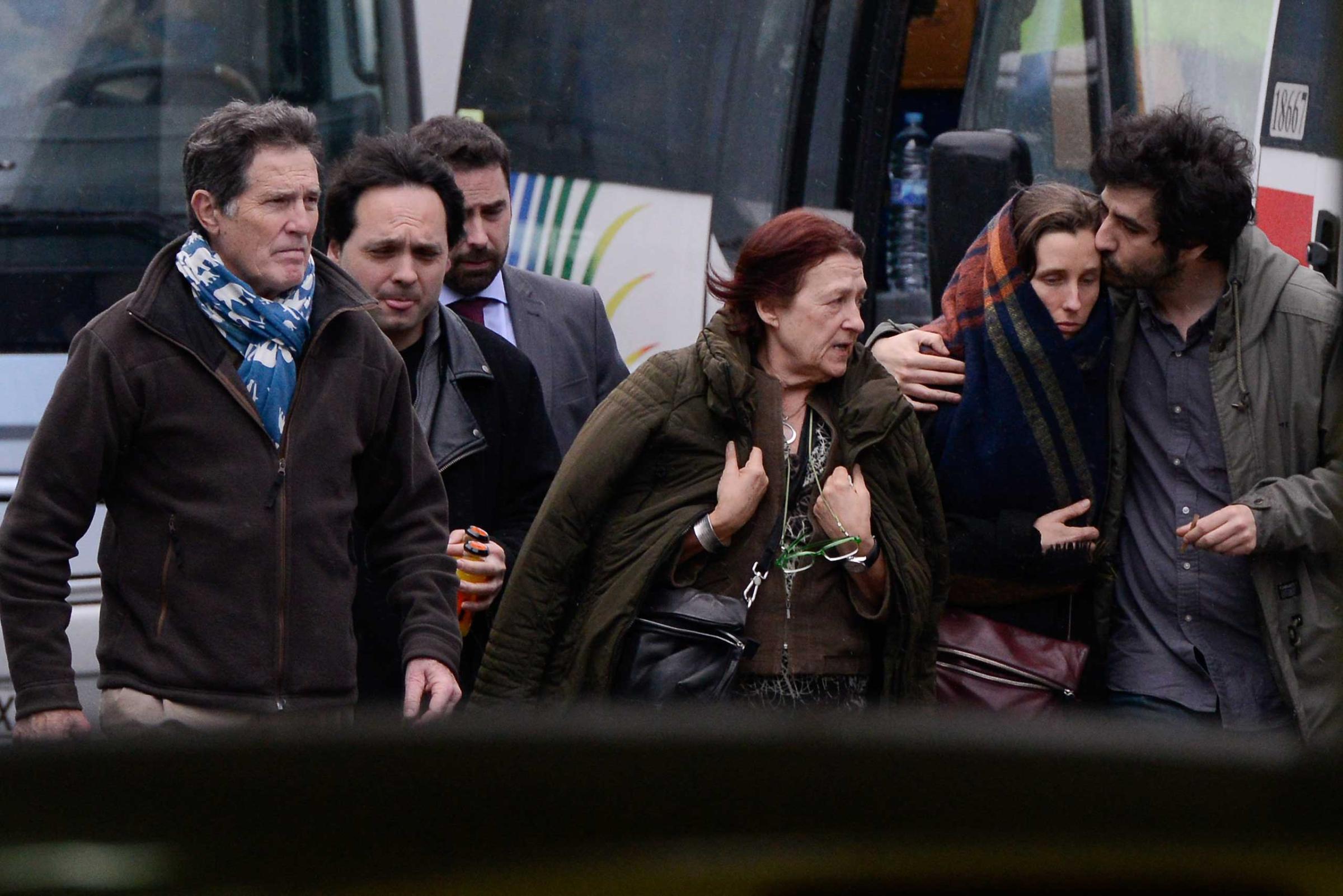
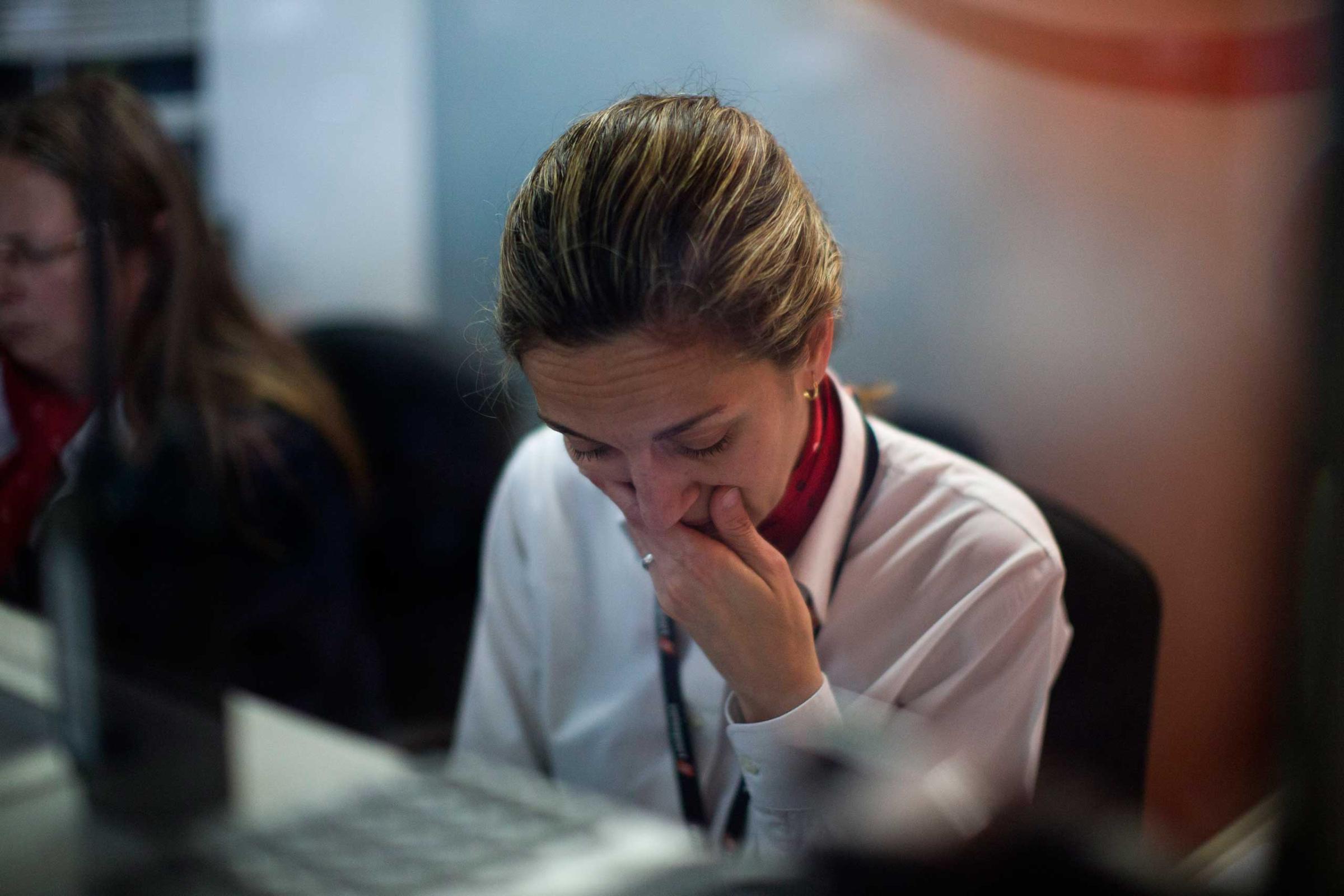
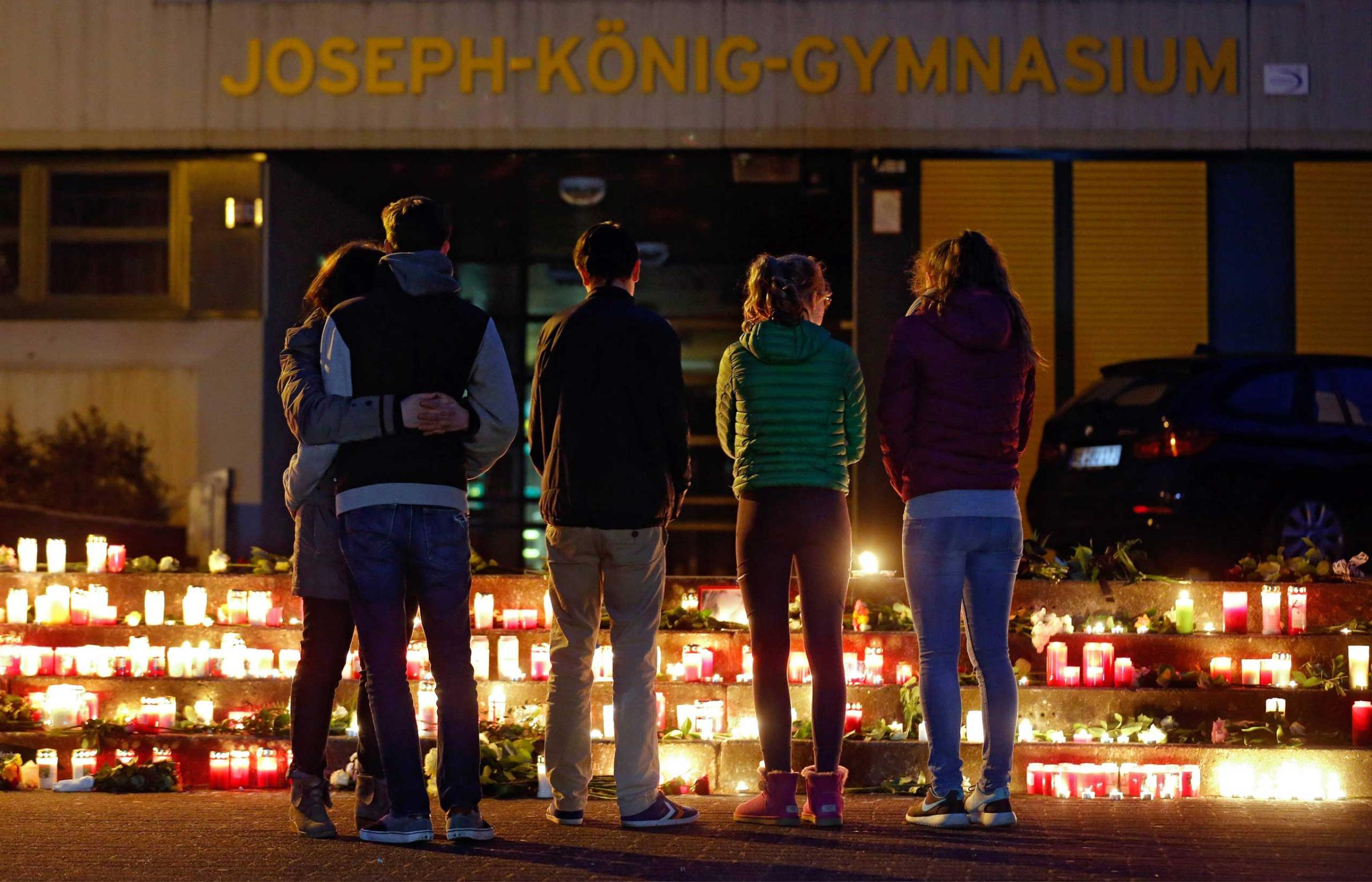
Lufthansa CEO Carsten Spohr said the airline had concluded that the plane was deliberately crashed. “We’re in a state of shock,” he told reporters. “We are horrified. This is the worst possible nightmare than anyone can have in this company.” Lubitz had passed medical tests “with flying colors. There had never been any doubt that he was fit,” he said. “We simply cannot understand this.”
Before meeting the press, Robin spoke to the stunned relatives of the victims, scores of whom have traveled to the French Alps near the crash site. And he also revealed his theory to the families of Lubitz and Sonderheimer, who have also gathered near the crash site, but who are being kept separate from the other relatives, according to Robin.
Lubitz joined Germanwings in September 2013, after graduating from Lufthansa’s in-house training program. Germanwings is Lufthansa’s low-cost subsidiary, headquartered in Cologne. Little else was known about him on Thursday. One Twitter photo shows Lubitz, a slender young man with dark hair and a sparse moustache, sitting on a wall next to the Golden Gate Bridge in San Francisco.
As the shock set in, one consolation for relatives seemed to be that the victims seemed unaware until the final impact that they were about to die. “The victims only realized at the very last minute what was happening,” Robin said. “You only hear screams right at the moment before the impact.” He said he believed “death was instantaneous. Slamming into the mountain at that speed, the plane was pulverized.”
Investigators will likely begin questioning how pilots are recruited, trained and monitored once on staff, including whether they focus too heavily on technical knowledge rather than psychological factors, especially since much of piloted is now automated. “There is no inquiry about your personal lives, religious views,” a former Air France pilot Jean Serrat told the French network BFM on Thursday, talking about pilot training. “It is all about technical capabilities and medical things.”
Correction: The original version of this story incorrectly described Andreas Lubitz’s flight history.
More Must-Reads from TIME
- Donald Trump Is TIME's 2024 Person of the Year
- Why We Chose Trump as Person of the Year
- Is Intermittent Fasting Good or Bad for You?
- The 100 Must-Read Books of 2024
- The 20 Best Christmas TV Episodes
- Column: If Optimism Feels Ridiculous Now, Try Hope
- The Future of Climate Action Is Trade Policy
- Merle Bombardieri Is Helping People Make the Baby Decision
Contact us at letters@time.com